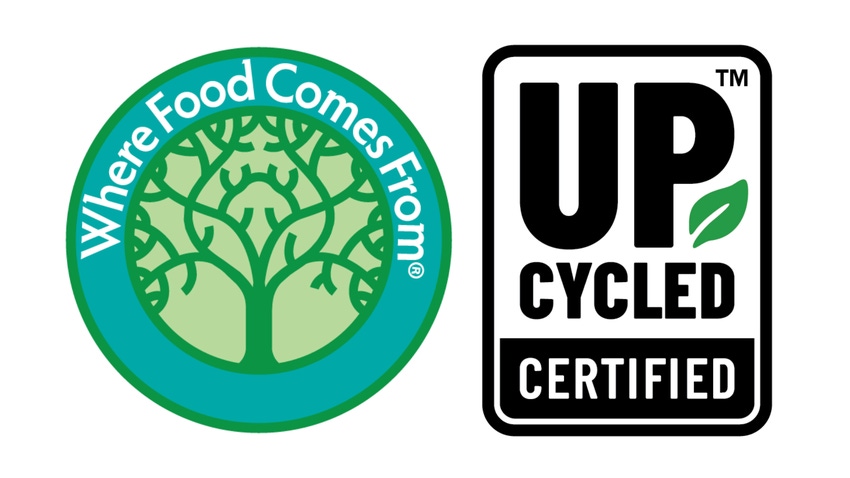Where Food Comes From Inc. acquires Upcycled Certified Program
As reducing food waste through upcycling becomes a fast-growing consumer trend, Where Food Comes From Inc. plans to expand program. Learn more.
January 3, 2024

Where Food Comes From Inc., the most trusted resource for independent, third-party verification of food production practices in North America, has acquired the Upcycled Certified Program from the Upcycled Food Association.
Upcycled Certified, the world’s first and largest provider of certification for upcycled food, has emerged as a dynamic force that is reshaping the way manufacturers add value to all parts of the food chain and avoid food waste.
Upcycled Certified is now one of the fastest-growing certification seals in the food industry, providing consumers a tangible solution to shop sustainably. There are currently 93 companies with more than 480 products certified to the standard, including leading consumer packaged goods companies such as Del Monte and Kerry Ingredients. These products are responsible for diverting an average of 390,000 tons of food waste annually since the program’s launch in 2021.
The acquisition comes at a time when upcycling is gaining in relevance and popularity. Over the last three years, upcycling consistently tops food trends lists, including those from Food Tank, Kroger, Forbes and Whole Foods Market. Data from retail insights firm SPINs show that 51% of consumers are more likely to buy a product identified as Upcycled Certified, signifying significant consumer acceptance and demand.
“The upcycled food movement is closely aligned with broader sustainability trends in the United States and around the world,” said John Saunders, chairman and CEO of Where Food Comes From. “This acquisition enables Where Food Comes From to meet growing consumer demand for products that contain upcycled food ingredients. As the exclusive certification body for the standard since early 2021—and as the most diverse food verification body in the country with more than 17,000 customers, we are ideally suited to take Upcycled Certified to the next level of growth.
“Our first order of business following the ownership transition will be to make it easier and more cost effective for brands, grocery retailers and foodservice operators to engage with the standard, ultimately expanding the offering of upcycled products and making it easier for consumers to eat well and be a part of the food waste solution. Our long-term objective is to make Upcycled Certified a ubiquitous standard and a meaningful component of our overall revenue mix.”
Angie Crone, CEO of the Upcycled Food Association, added, “UFA is thrilled that Upcycled Certified has become part of the Where Food Comes From family of certifications. Given the scale of the food waste crisis, growing demands on our natural resources and increasing food insecurity, we need to work collaboratively and as quickly as possible to transform our food system into one where food is valued and never wasted. Due to its high profile in the food verification industry, we believe WFCF is the ideal partner to help further our mission to accelerate the upcycled food movement for impact at scale.”
The Upcycled Standard, developed by the Upcycled Food Association, is designed to reduce food waste by promoting the upcycled food economy. Upcycled products use ingredients that have full nutritional value and are safe but for various reasons would have gone to waste. Operators that grow, produce, manufacture, process and trade in food, beverages and other food-related products are eligible to apply for Upcycled Certified. These operators must demonstrate that ingredients they handle have been procured and produced using verifiable supply chains.
According to Project Drawdown, decreasing food waste is the No. 1 solution to reducing the need for land and resources used to produce food as well as the greenhouse gases released in the process. Yet, in the U.S. alone an estimated 40% of all food grown annually is unsold or uneaten. ReFED, a leading food waste research organization, estimates that the U.S. has 80 million tons of food that is wasted annually with a financial loss of $310 billion.
Upcycled products in the U.S. marketplace include food and beverages, dietary supplements, pet food, cosmetics, personal care products, and household cleaners. A Future Market Insights report estimates the value of the upcycled food industry to be more than $46 billion and growing.
Source: Where Food Comes From
You May Also Like


